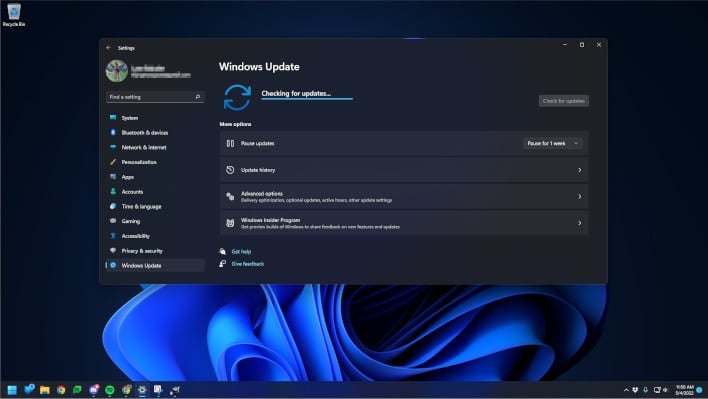
Putting aside for now the absurdity of testing with a preview build of Windows, we’ve already tested that claim and found that the new build did indeed slightly improve performance on Zen 5. There are lots of reasons someone might not want to run a preview build on their personal PC, though. If you’re in that group yet you still want the best performance for your Ryzen machine, you’re in luck, because AMD shot us a line to let us know that those optimizations have now been backported to Windows 11 23H2.
Indeed, if you’re on the current stable version of Windows 11, go to the Windows Update settings page, click “Advanced”, and then “Optional updates”. Under there, you may well see an update numbered “KB5041587” titled “Cumulative Update Preview for Windows 11 Version 23H2”. Install that, and according to AMD, you should be able to enjoy improved CPU performance on your Ryzen processors.
We say “according to AMD” because we spent most of the afternoon testing it on three different machines and actually came up with no real measurable change across three different benchmarks. The three tests in question were Geekbench 6, Cinebench 2024, and a Hogwarts Legacy benchmark in the demanding Hogsmeade town area, and the systems we tested were based on a Ryzen 7 5800X3D, a Ryzen 7 8700G, and an Alienware m18 R1 laptop with a Core i9-13980HX CPU.

If you’re wondering why we tested Zen 3 and Zen 4 processors as well as an Intel chip, it’s because we’ve already tested the impact of the Windows 11 26100 build on Zen 5, and AMD said that this branch prediction update could improve performance for Zen 4 and Zen 3 as well. We were also curious if Intel would benefit, too. However, in our findings, it really didn’t make any difference at all for these other CPUs. Let us know in the comments if you test update KB5041587 for yourself.
